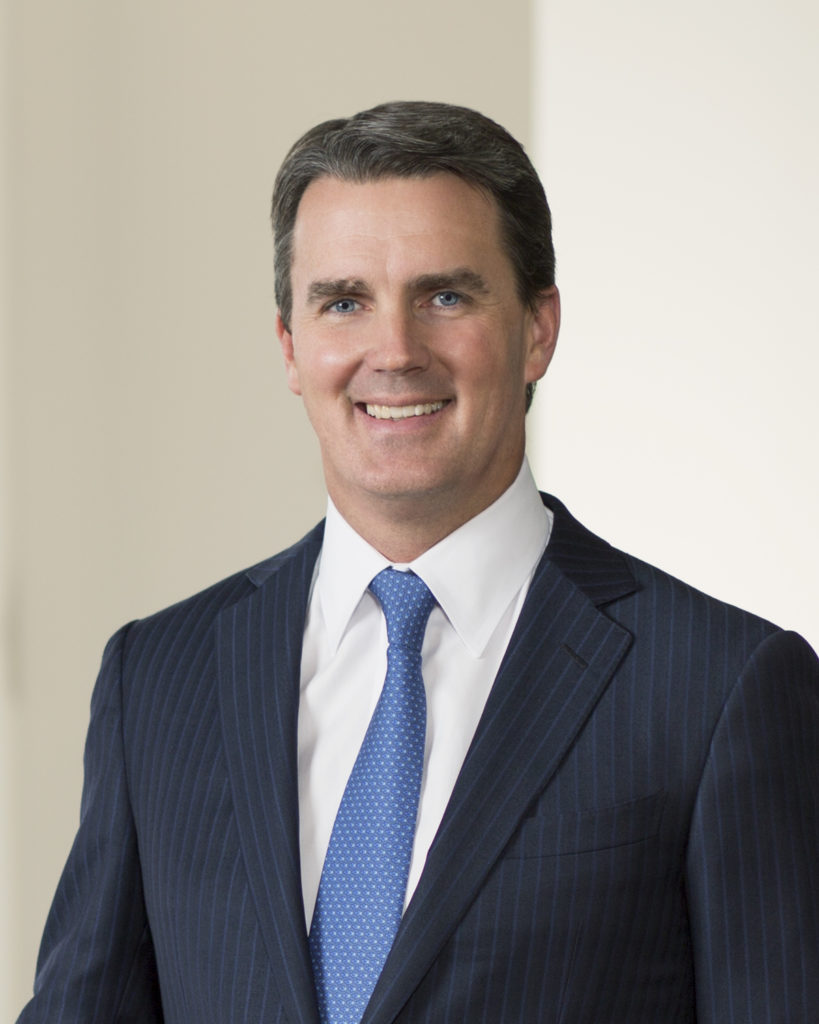When a Massachusetts fantasy baseball contestant filed a federal class action lawsuit in the Southern District of New York against the Houston Astros, Boston Red Sox and Major League Baseball nine weeks ago over the sign-stealing controversy, most commentators said it would be many months or even years before there would be a resolution.
Those expectations only multiplied when COVID-19 hit New York City, causing the federal courts to close their doors to all but the most urgent court proceedings.
But Vinson & Elkins partners Hilary Preston and Michael Holmes knew better. Both had litigated cases before Manhattan Senior U.S. District Judge Jed Rakoff before.
“Judge Rakoff believes a fast-moving docket is a benefit to everyone,” Holmes told The Texas Lawbook in an interview Sunday. “It helps that Hilary is an expert in sports law and technology.”

Rakoff has presided over dozens of high-profile civil and criminal cases during his 24 years on the federal bench, including the U.S. Securities and Exchange Commission’s prosecutions of WorldCom in 2002 and Citigroup in 2010 and the insider trading trial of McKinsey & Company managing partner Rajat Gupta. In addition, Vladimir Putin has banned Judge Rakoff from being able to enter Russia because the Russian president believes the judge was too harsh in sentencing two Russian criminals to lengthy prison sentences for their crimes.
Holmes said he and Preston knew one other important fact about Judge Rakoff.
“He’s a big-time New York Yankees fan,” he said. “He made no secret of that.”
Preston is a V&E partner who splits her time between Austin and New York and counts Fox Sports, Turner Digital Basketball Services and NFL Enterprises as clients. Her practice, she said, is the “intersection where the sports world and technology touch.”
Together, Preston, Holmes and a handful of other V&E lawyers are representing the Houston Astros in the litigation before Judge Rakoff and another similar case in Minnesota.

On Friday, Judge Rakoff dismissed the lawsuit against the Astros and other defendants with prejudice, adopting several of the critical arguments made by Preston and Holmes in their motion to dismiss.
“It is an incredibly well-written opinion,” said Holmes, a Dallas lawyer who specializes in securities litigation and represents businesses in corporate governance disputes. “It is technical and clean in its logic and reasoning. Obviously, we think it was legally the right outcome.”
Lawyers for Kristopher Olson filed the lawsuit Jan. 23 claiming that the Astros, Red Sox and MLB committed fraud and negligence, violated consumer protection laws and illegally benefited from an unjust enrichment as a result of the sign-stealing scandal.
Olson claimed the fraud caused fantasy baseball statistics to be improperly altered and thus negatively impacted his potential DraftKings Fantasy Sports winnings. He alleged that the defendants made false statements and omissions designed to induce himself and others to wager on fantasy baseball.
Within a few days, a handful of other sports fantasy players also joined the class-action lawsuit.
Houston Astros General Counsel Giles Kibbe hired V&E to defend the baseball club. V&E bankruptcy and restructuring partner Harry Perrin in Houston had represented the Astros who were creditors in the forced bankruptcy of the Houston Regional Sports Network in 2013.
Within 36 hours of being assigned the case, Judge Rakoff set a status conference for the following Friday and scheduled the pre-trial conference for July.
Preston, Holmes and V&E partner Cliff Thau in New York filed a 20-page motion to dismiss Feb. 21 that cited 56 prior court decisions that supported the defense’s legal positions that the plaintiffs failed to meet both the legal and factual burdens required to allow a case to move forward.
Their argument was simple:
“Courts have been overwhelmingly clear in their rulings that we as fans do not have the right to enforce rules in sports,” Preston said in an interview Sunday.
“Except for golf, where fans can see the violation on TV and call it in,” Holmes joked, referring to the 2017 incident in which a fan called in a four-stroke penalty against LPGA player Lexi Thompson after seeing a violation on TV.
“Plaintiffs do not allege that they had a contractual or fiduciary relationship with any defendant, that any representative of any defendant made a representation or statement to them, or even that they attended or viewed an Astros or Red Sox game,” the V&E lawyers argued in their written motion.
Judge Rakoff,a 76-year-old Clinton appointee, told the lawyers to present oral arguments to him in his courtroom on March 20.
Then the coronavirus hit New York. The city essentially shut down.
Instead of delaying the hearing, Judge Rakoff told the parties March 18 that he would hear their arguments by teleconference.
For two hours on the phone, the lawyers made their arguments and responded with the judge’s questions.
Preston spoke for the Astros, arguing that the plaintiffs “failed to allege that the Astros made any misrepresentations to DraftKings users or that the Astros had any duty … to disclose the sign-stealing [to the fantasy players].”
“Plaintiffs’ central theory in this case is that, as a result of the Astros’ alleged sign-stealing, they and the putative class were denied an undefined right to participate in fantasy baseball wagering competitions free of rules violations,” she argued.
“It is well-established, however, that attendees or viewers at sporting events have no express or implied right to an event free of penalties, undisclosed injuries, rules violations, cheating or similar conduct,” Preston argued. “Claims asserting such a right have been repeatedly dismissed.”
Holmes and Preston said that making extended arguments to a judge via tele-conference call is different from in person because “you have no verbal cues to go on” and no facial expressions or gestures to interpret.
On April 3, exactly two weeks after the long-distance oral argument, Judge Rakoff issued his 31-page decision. He made no effort to hide his displeasure with the cheating by the players, especially violations of the commissioner’s rule forbidding the use of electronic equipment to steal signs from the opposing team’s catcher.
“In 2017 and thereafter, the Houston Astros, and somewhat less blatantly the Boston Red Sox, shamelessly broke that rule, and thereby broke the hearts of all true baseball fans,” Judge Rakoff wrote. “But did the initial efforts of those teams, and supposedly of Major League Baseball itself, to conceal these foul deeds from the simple sports bettors who wagered on fantasy baseball create a cognizable legal claim?”
“On the allegations made here, the answer is no,” he ruled.
In page after page, Judge Rakoff adopted the arguments of Preston and Holmes, including:
- “Plaintiffs have thus failed to allege that the defendants made any misrepresentations about fantasy baseball contests themselves.”
- “The complaint does not even allege that the plaintiffs ‘saw, read, or otherwise noticed’ any of the few actionable misrepresentations” cited by the plaintiffs in their lawsuit.
- “Because plaintiffs have not alleged the existence of any transaction – or any comparable business relationship – between themselves and the defendants,” there was no duty for the defendants to disclose information. “Plaintiffs, in sum, have offered no basis for imposing a duty to disclose on any of the defendants.”
- “Finally, plaintiffs’ failure to demonstrate that defendants’ enrichment came at their expense forecloses their unjust enrichment claims.”
Now, Preston and Holmes turn their attention to a similar lawsuit against the Houston Astros pending in Minnesota, which also involves fantasy baseball players.
